Read time: 4 minutes
Coming up: kids, cravings, coffee, unexpected stats, speedy breakfast life hacks, surprisingly protein-packed ingredients, and my go-to 5-minute high-protein breakfast for menopause & perimenopause.
When you’re at menopause & perimenopause age, you’re usually pretty busy.
I get it—cos I am too.
I’m in my 40s.
I’m a business owner and a mum of two… and my mornings are NEVER slow, so here it is...
Before 9am, I do some work, I get Henry (10) and Hannah (5) ready for school, and I squeeze in a little bit of movement (sometimes in the gym, sometimes at home). In amongst all that, I also try to fit in a quick, nutritious breakfast.
(one that’ll fully fuel me for the day ahead).
So: I usually rely on this quick and tasty high-protein breakfast:
My 5-minute high-protein breakfast for perimenopause & menopause
I eat this almost every morning, to keep:
-
My energy up
-
My metabolism strong
-
And my hormones balanced
It only takes 5 minutes to prep. Here it is:
✅ 1 tablespoon of seed mix (chia, flax, pumpkin, sunflower)
✅ 150g of Greek yoghurt (or a dairy-free alternative)
✅ 1 scoop of protein powder (whey or plant-based)
✅ ½ a cup of raspberries & blueberries
✅ 1 tablespoon of goji berries
Grab a spoon, mix it all up, and you’re done! Simple, quick, easy, healthy.

Why this breakfast is perfect for women in perimenopause & menopause
Confession: I’m no nutritionist or doctor.
But this breakfast has worked for me for years.
… and I’ve done some research on the whys. Including:
-
It’s packed with fibre and protein, which both keep you fuller for longer. This helps with weight management, stops you from snacking, and prevents you from crashing before lunch.
-
It features many antioxidants and omega-3s, to fight cell damage and inflammation, and support brain health.
-
The yoghurt has lots of probiotics and calcium. This means better gut health, improved digestion and hormonal balance, and stronger bones and joints.
Top tip: make sure there are flax seeds in your seed mix. Flax seeds contain lignans, which naturally support estrogen balance.
Most importantly, my quick and easy breakfast contains lots of protein. Here’s more:
Perimenopause & menopause: why high-protein breakfasts are important
During perimenopause & menopause, our bodies are going through big hormonal changes.
Amongst many other things, these changes impact muscle mass, metabolism, and energy levels.
And upping your protein can help with all three. A high-protein breakfast:
-
Curbs cravings: so you mightn’t munch on sugary snacks later in the day
-
Keeps you fuller for longer: less chance of energy crashes and irritability
-
Boosts your metabolism: more protein can help to build and maintain more muscle. And more muscle = higher calorie burn
So, I always have 20-30g of protein at breakfast (and more if possible!). Top tip: pick a protein powder with at least 20g of protein per serving, and no added sugars.
Bad news: a high-protein diet is especially important for women like us, because in menopause and perimenopause, our estrogen declines—and this accelerates muscle loss.
Other quick high-protein breakfast ideas for menopause & perimenopause
Let’s be honest—no-one wants to eat exactly the same breakfast EVERY day.
So when I’m not munching on my fave brekky, here are some other top go-tos:
-
Smoothies, with protein powder, fruits, spinach, and chia seeds
-
Overnight oats, with protein powder and chia seeds
-
Scrambled eggs on wholegrain toast with avocado
If I’m in a real hurry, I sometimes eat pre-boiled eggs (boil them the night before) with a handful of nuts.
As you’ve probably noticed, I use similar ingredients again and again. That’s because I like to prioritize protein. Some of my favorite high-protein ingredients are:
-
Yogurt: 3-12g of protein per 100g. Skyr is best, with 10-12g protein per 100g
-
Chia seeds: 17g of protein per 100g
-
Oats: 11-13g of protein per 100g
-
Eggs: 5-7g of protein per egg
Other ways to help and support your body during menopause & perimenopause
-
Regular exercise: this promotes weight loss, better sleep, better mood, and improved heart health. During menopause, “you may be at an increased risk of heart disease.”
-
Controlling stress and sleep: I get 6-8 hours of sleep per night, sleep in a dark room, and try to make sure I’m waking and sleeping at similar times each day. You can control your stress with yoga, meditation, and getting better sleep. I also take Equilibrium, featuring Ashwagandha, L-Theanine, magnesium, and more. It’s improved my sleep quality, and helps me wind down and relax.
-
Make sure you’re hydrating properly: as we get older, our bodies retain less moisture. So, drink 6-8 cups of water per day, keep track of your hydration, and remember to drink before you’re thirsty.
-
Limit alcohol and caffeine: I haven’t cut these out completely, but I’m more mindful about when I do (and don’t!) drink them. Both alcohol and caffeine can badly affect sleep and stress.
-
Finally, I take Harmony. Featuring Vitamin D, Magnesium Bisglycinate, Zinc Bisglycinate, Vitamin B12, Vitamin B6, Selenium, and Lion’s Mane, it’s specifically designed to battle the symptoms of menopause and perimenopause. It can help to calm stress, regulate cortisol, boost mood and energy, reduce inflammation and fatigue, and support gut health.
See you next time!
As you already know, perimenopause & menopause cause BIG changes in our bodies.
We get tired and sluggish, our hormones shift, our stress rises, and weight management becomes a lot more tricky.
… so: simple breakfasts like my seeds and berries protein bowl (along with the right supplements and lifestyle choices) can make a big difference. It’s quick, easy, tasty and nutritious, and I reckon it’ll become one of your morning favourites.
Thanks for reading, and I’ll see you next time for more on how I am personally navigating perimenopause.
Elaine x.




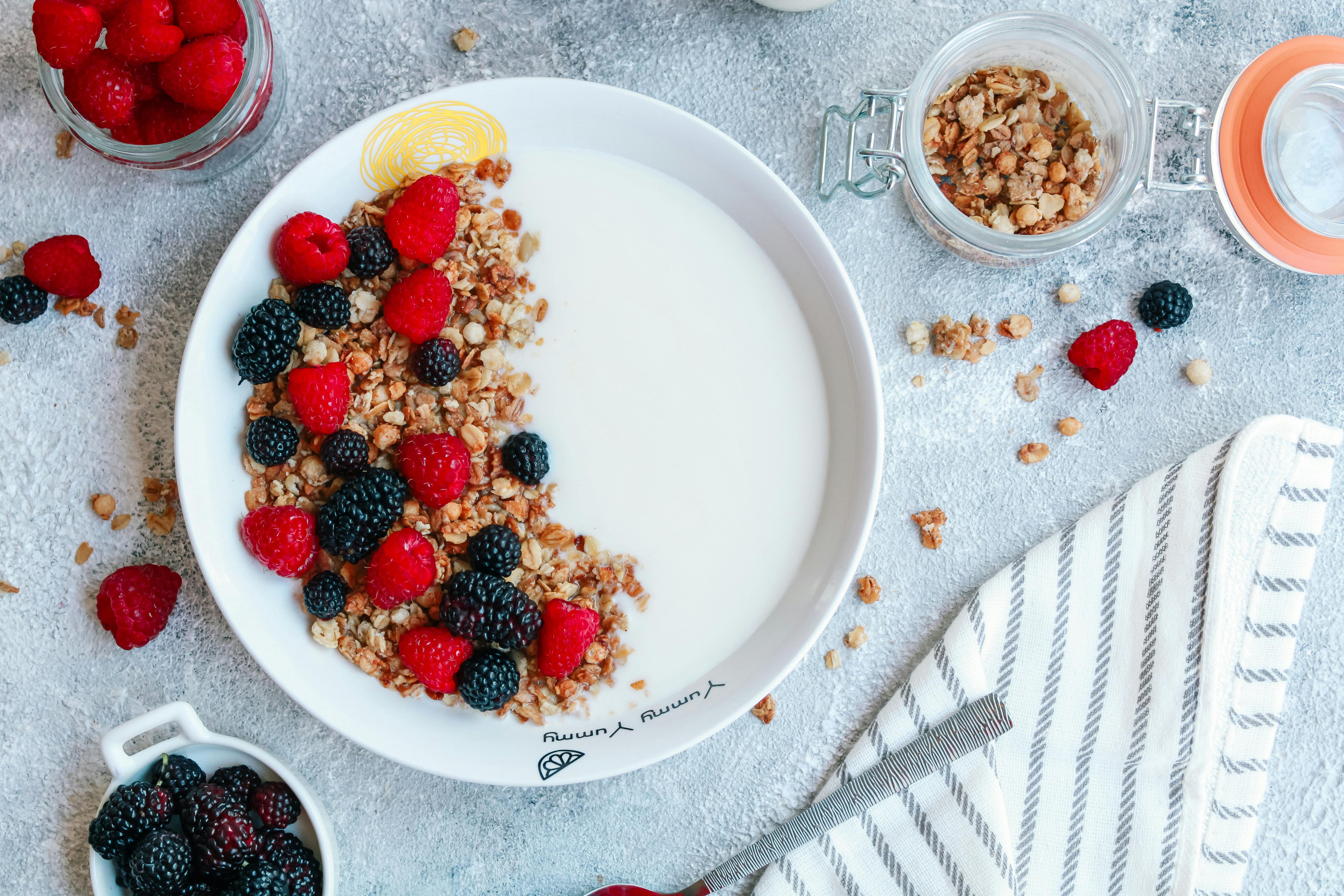
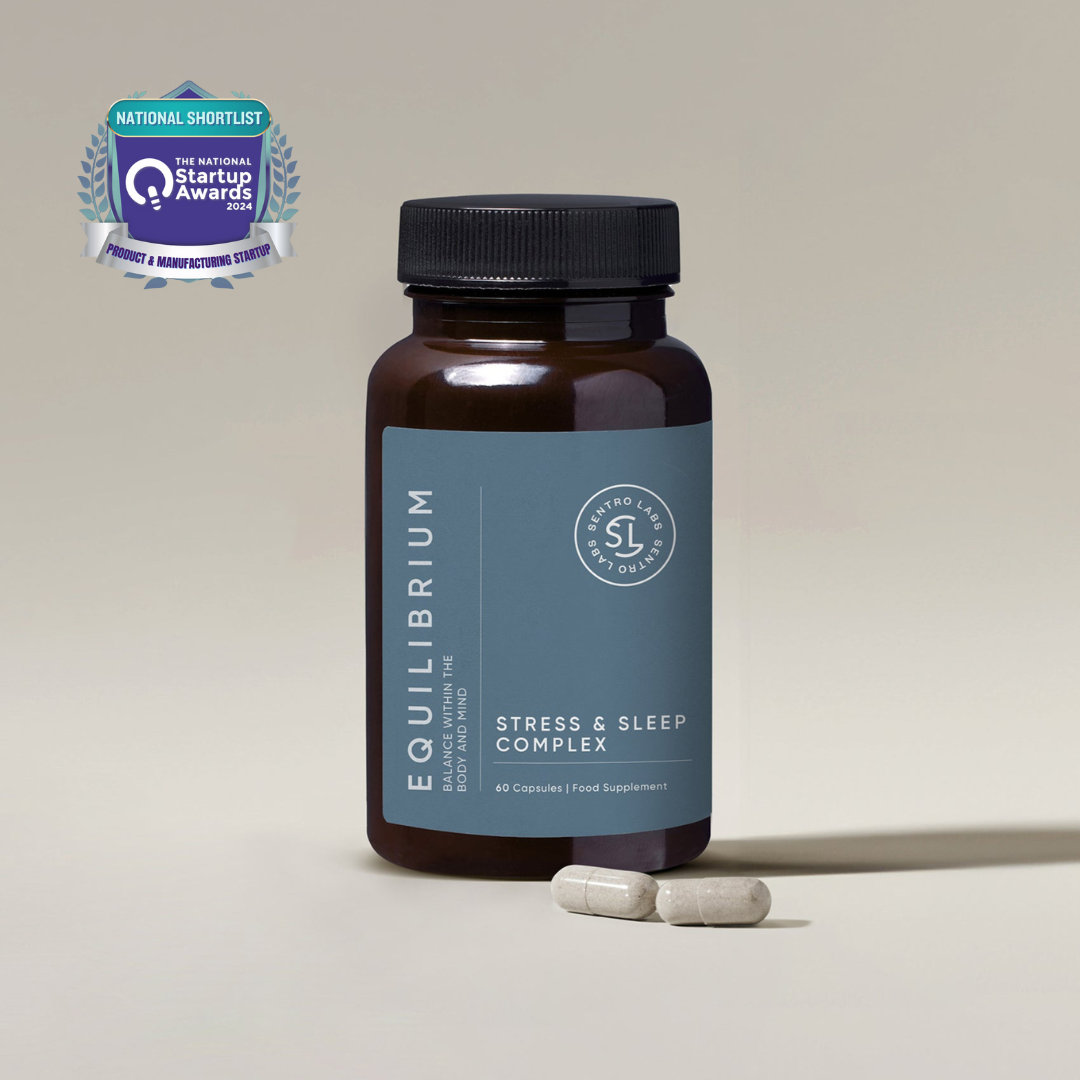


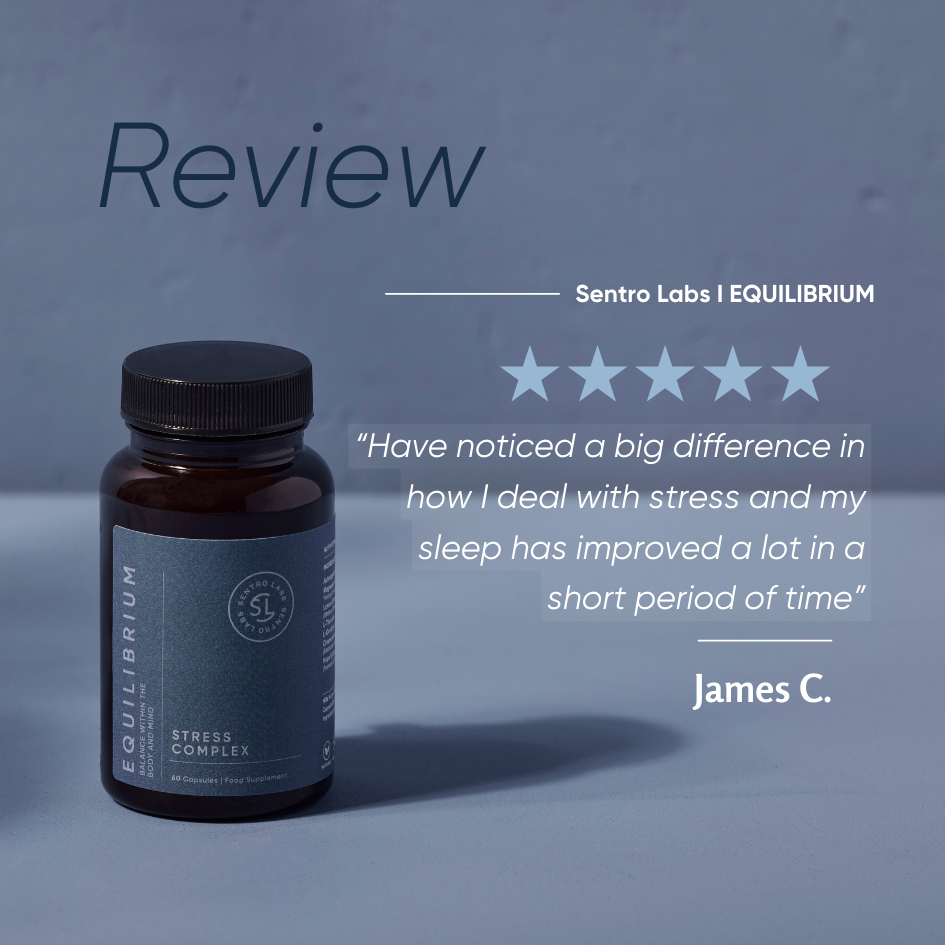
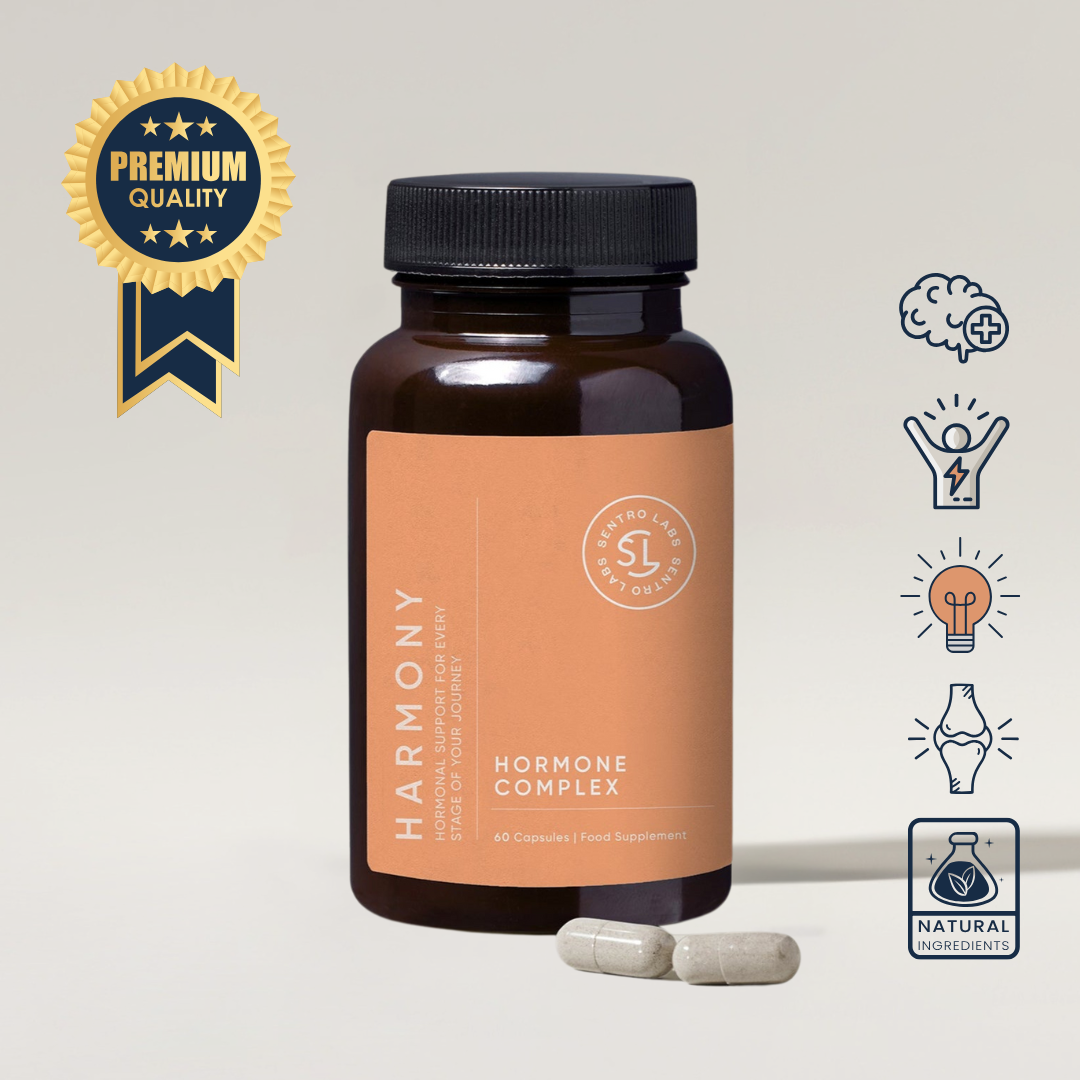
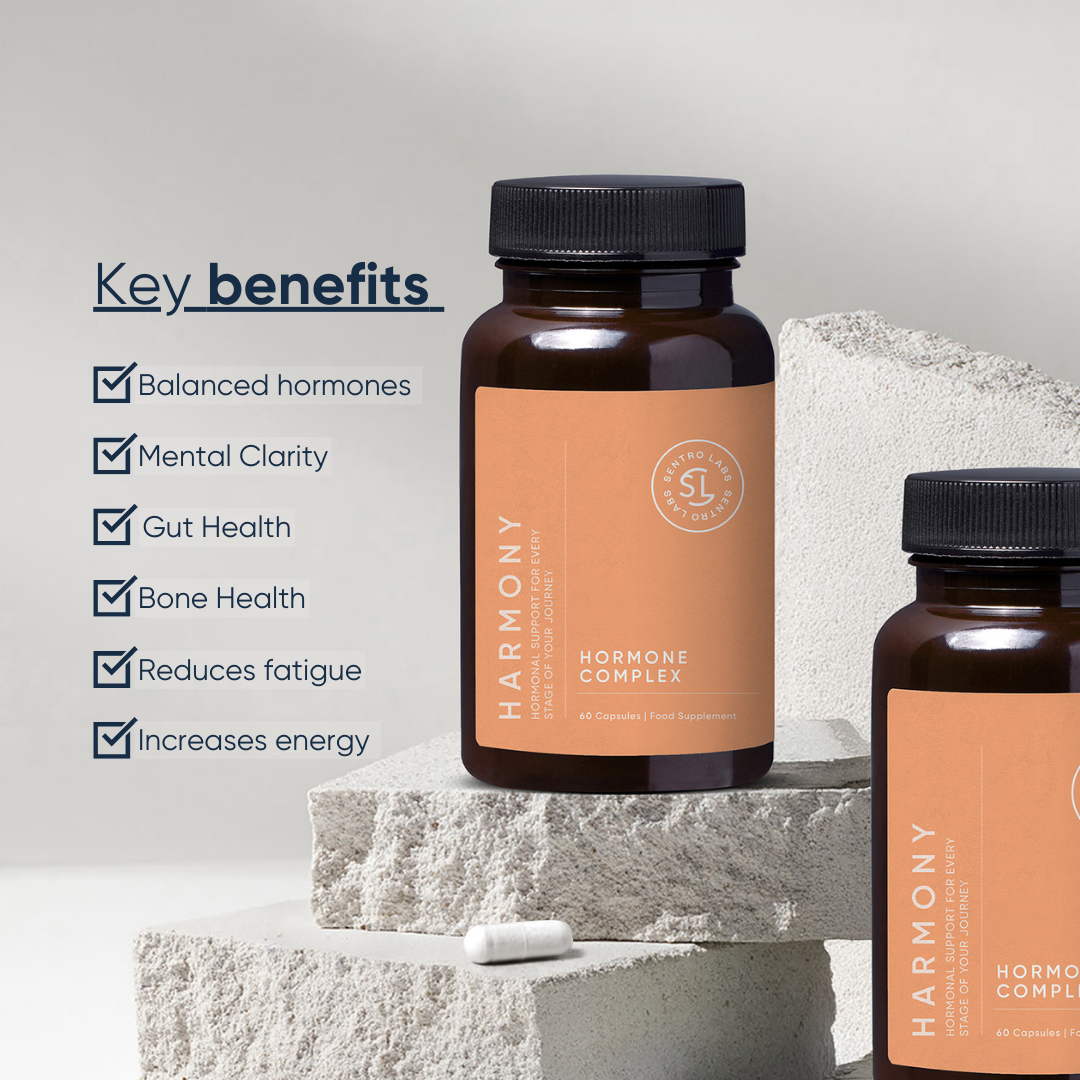
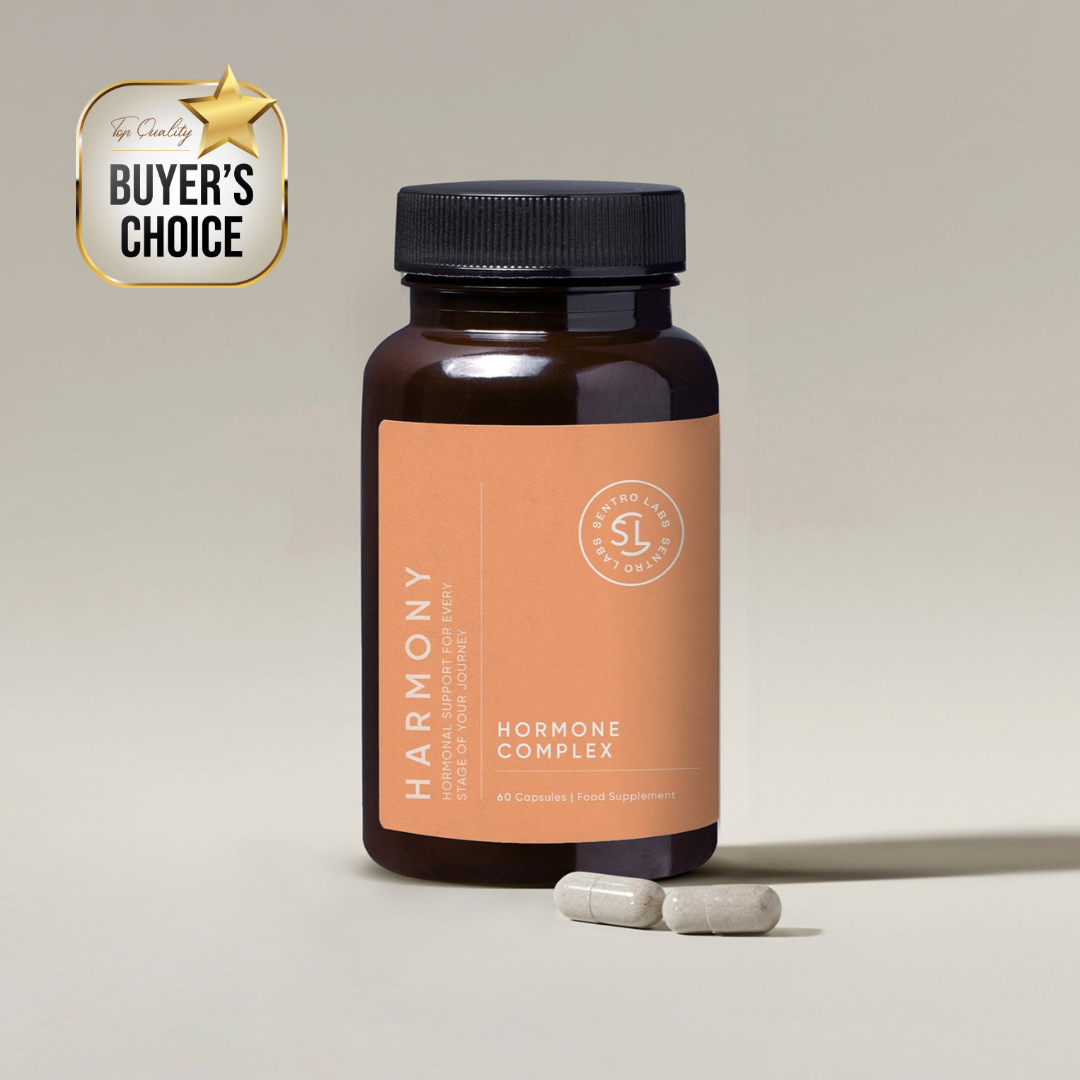
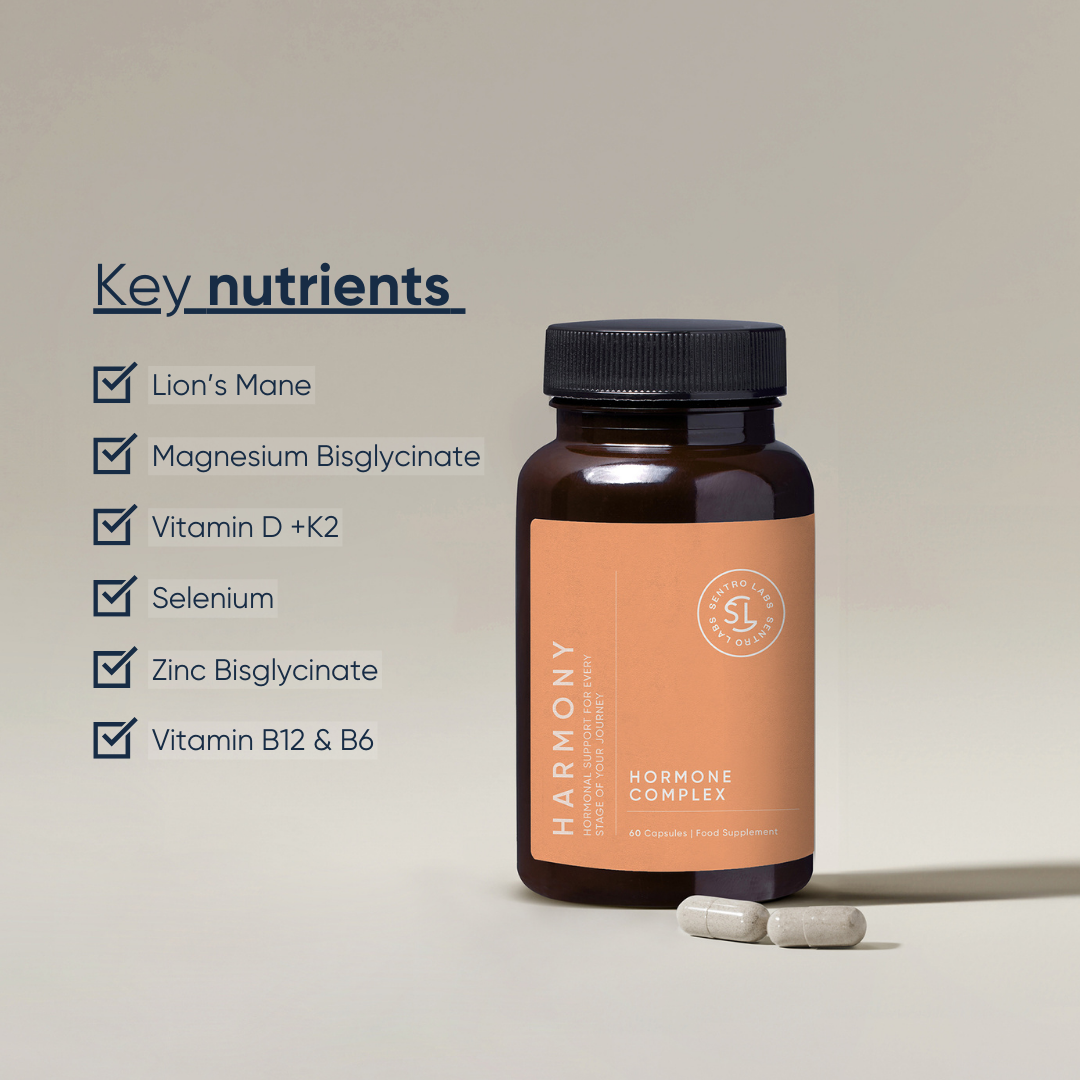
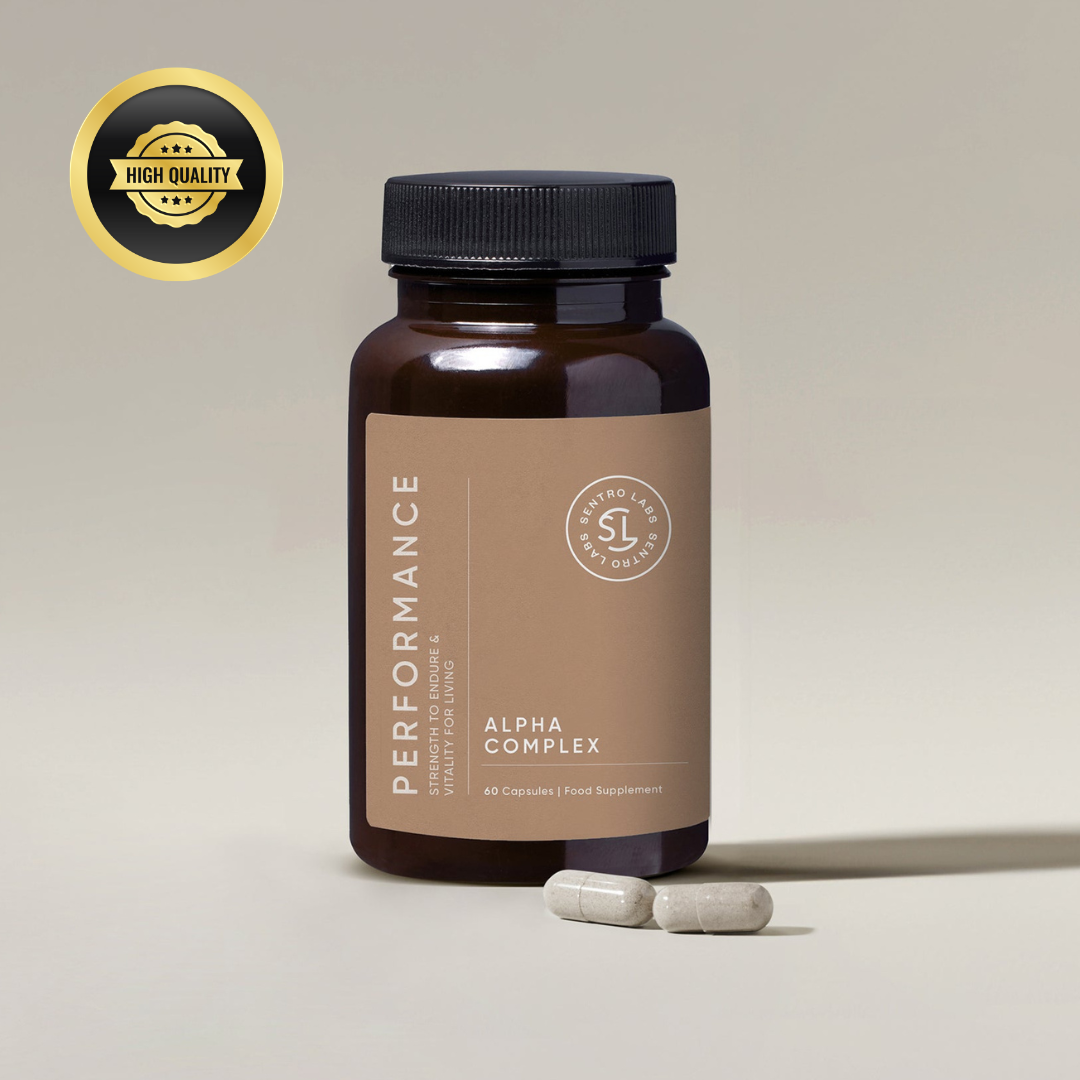
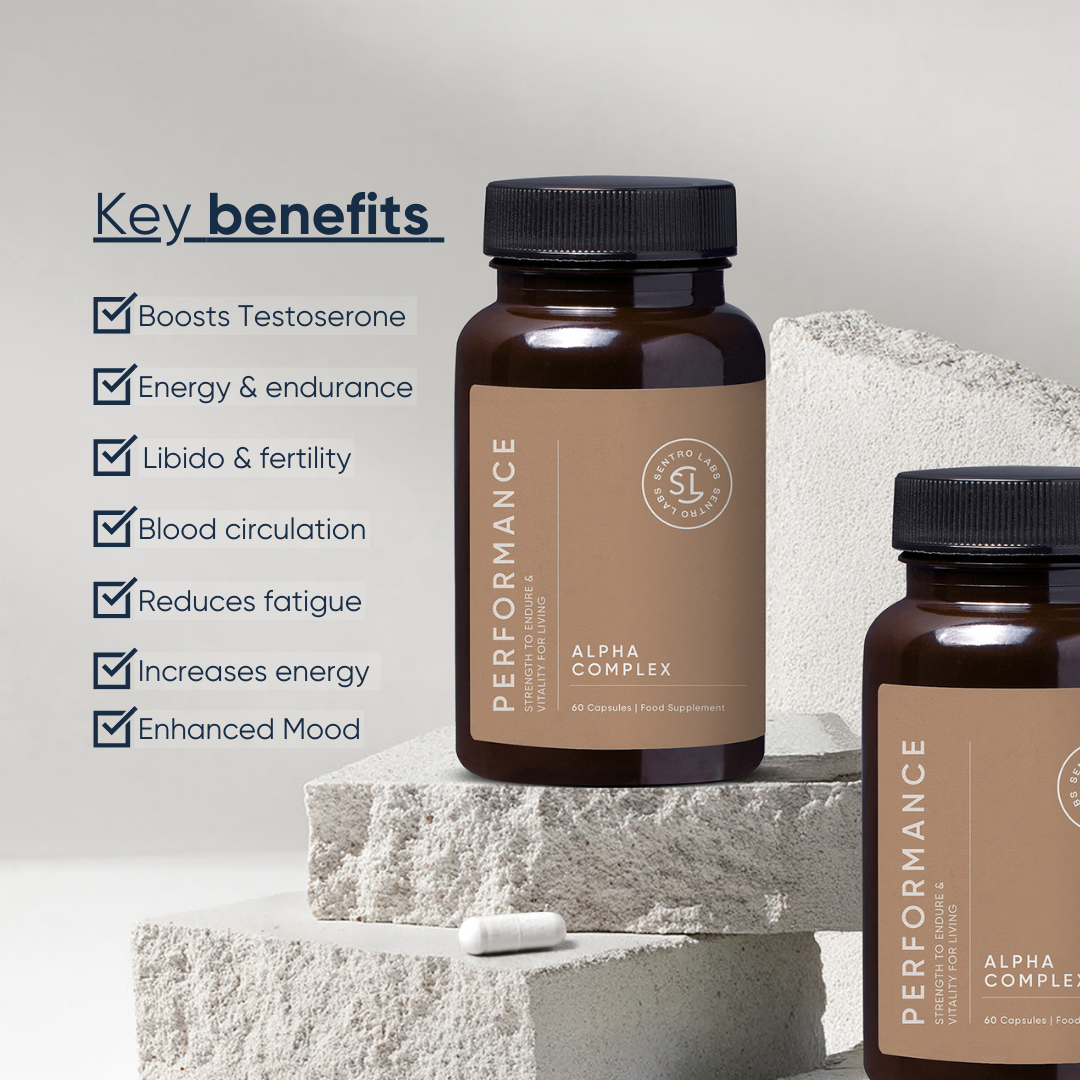
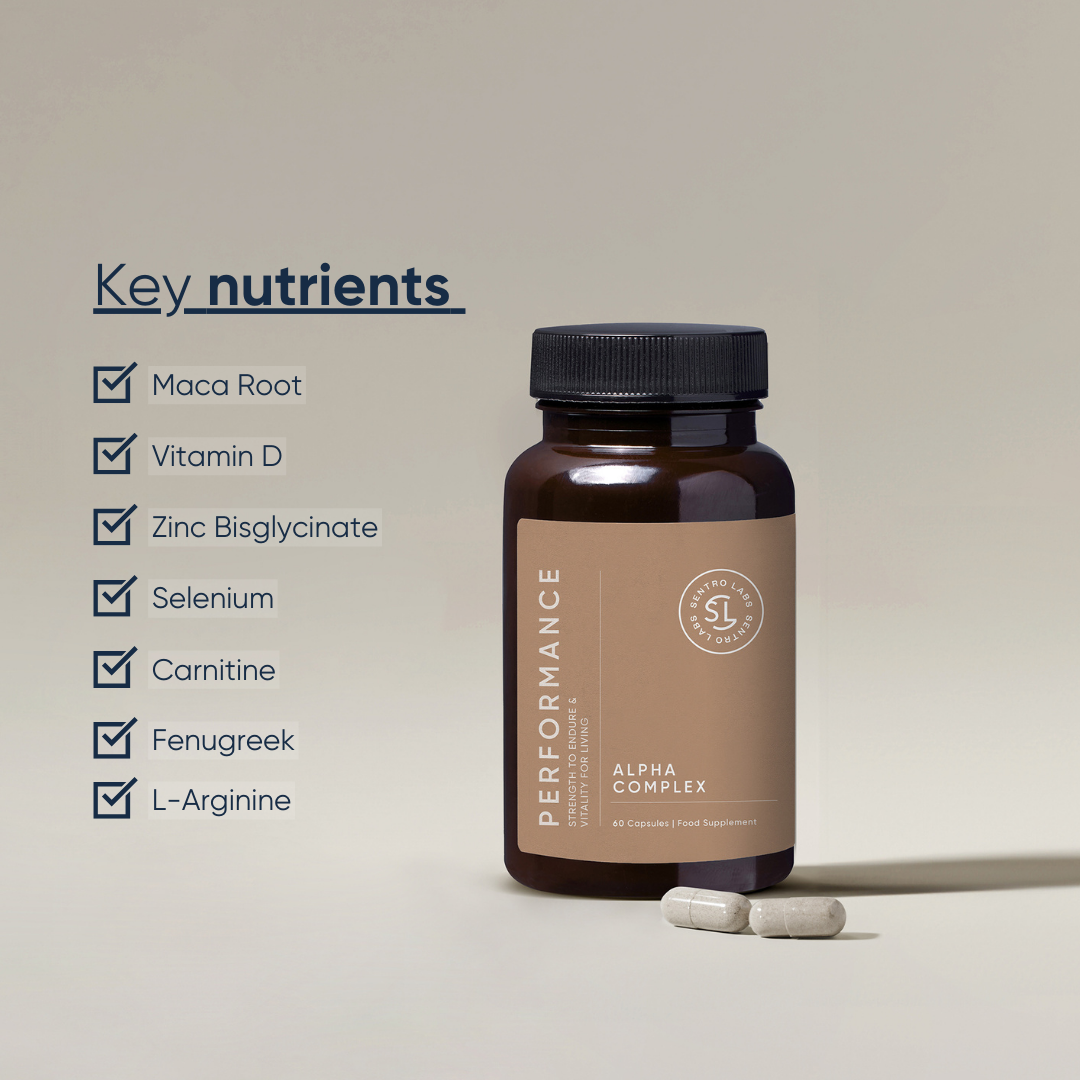
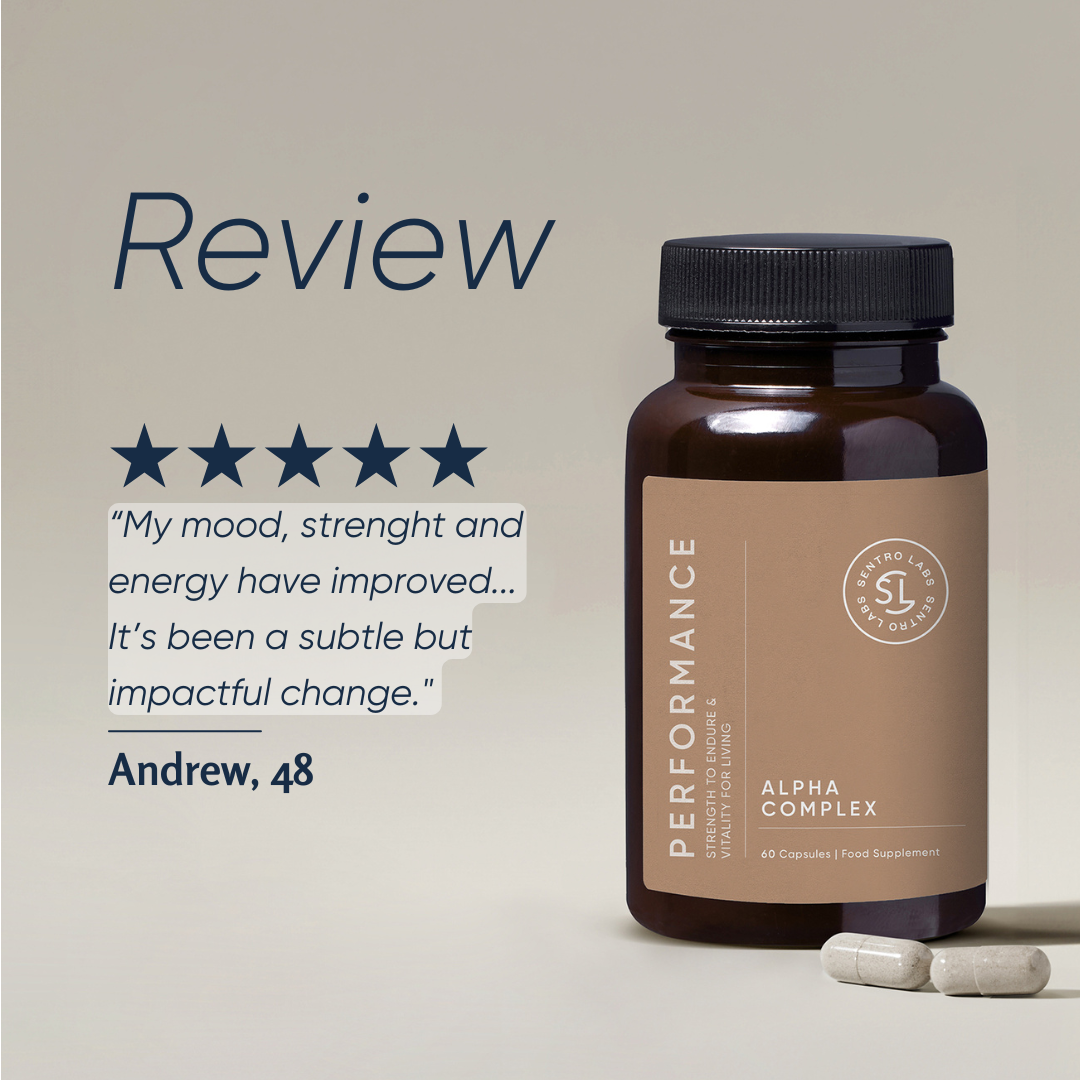

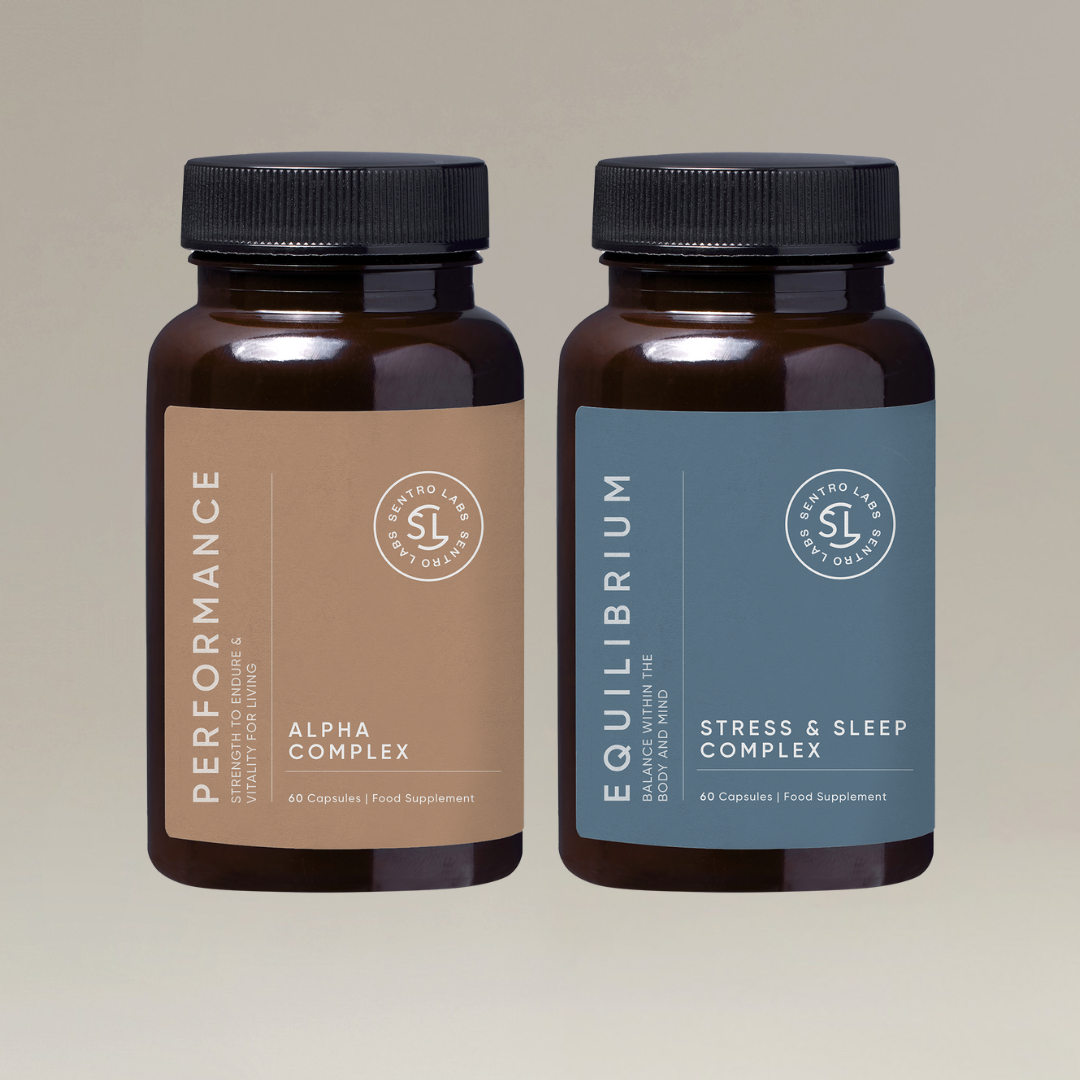
Share:
Experience a Day in the Life of Elaine, founder of Sentro Labs
Why High-Protein Diets are Essential for Menopause & Perimenopause